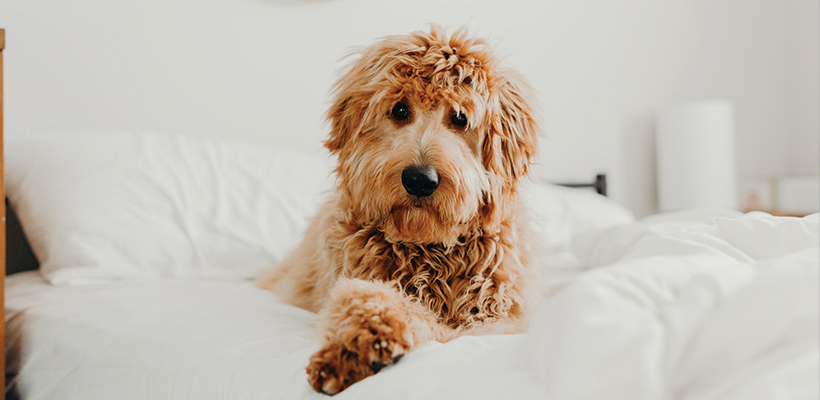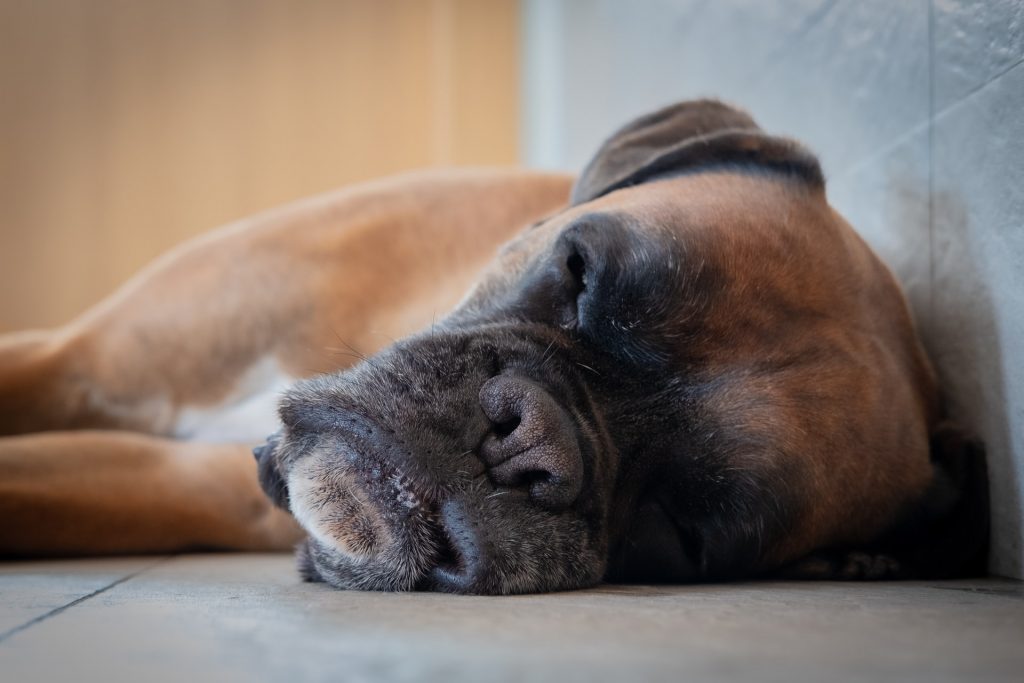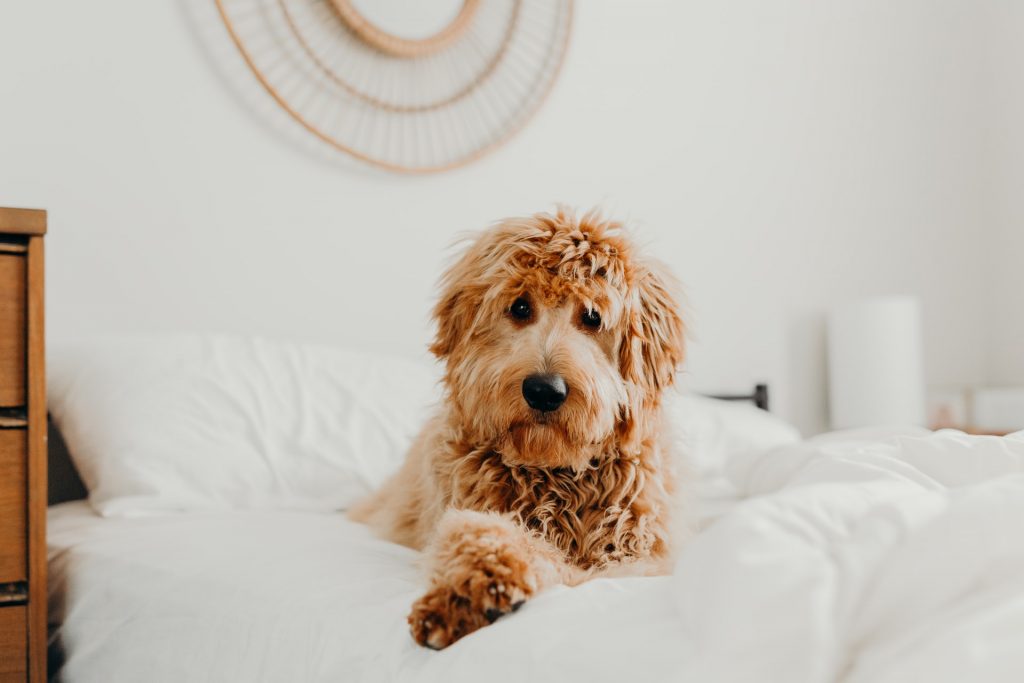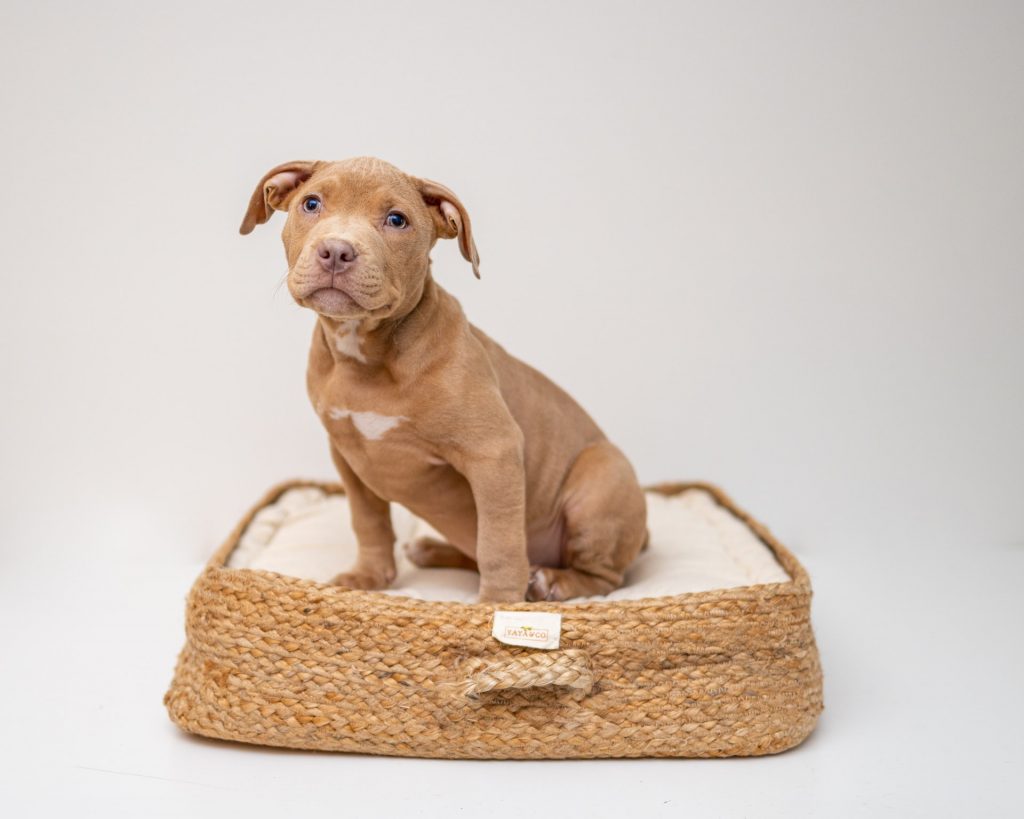
This article is contributed by guest writer, Clara L (Writer at Petlovesbest.com).
How to Adjust Your Dog’s Sleeping Schedule After Adoption
Bringing your first-ever dog home can be a stressful and overwhelming experience in the beginning. You’re already worried about your dog’s happiness and well-being the way it isn’t rational. Yes, puppy blues is a real deal but it should ease up itself. Dog’s sleeping schedule is one of the crucial things you should focus on in the beginning. In this article, we will see how you can adjust your dog’s sleeping schedule after adoption.
How will your dog sleep when he first comes home?
Each dog is different, even if they’re siblings. They all have different personalities and that also decides how soon your dog will adjust to his new home. Some dogs can get along with their new surroundings just in a single day and some might even take a few months.
This doesn’t imply that your dog is better when it can adjust to its new settings easily. A dog will be the happiest in his furever home after all.
Dogs sleep for about 12 to 14 hours a day but they are opportunists about it when they are in shelters or living outdoor lives. Other environmental factors like noise, barking of other dogs, and visitors disrupt their sleep often. You should not be surprised if your pup decides to doze off once he finds a comfy space to lay down when you first bring him home.
That’s because he is getting a secure, calm, and safe place away from the external environment after a long time. But as soon as your dog gets used to living with you he has to sleep through the night for about 8 hours and sleep for 4-5 more hours during the daytime. This is the most common sleeping schedule for pet dogs.

Photo Credit: Guillermo Latorre via Unsplash
Routine is key
The primary approach to fix your dog’s sleep schedule is to make a routine and stick to it. If you feed him at a fixed time every day, he will want to poop and pee at almost the same time. This way, everything will be in sync, including his sleep.
This is, however, only true for young adult dogs and older than that. Pups under one year of age may wake up multiple times during nighttime to pee as their bladders aren’t fully developed. On the other hand, adult dogs can go without needing to eliminate or eat over the night if they’re well-fed and relieved before going to bed.
We tend to sleep in on weekends and do not want our dogs to interrupt our sleep in the morning and beg for food. Giving their last meal an hour late and a walk before sleeping will make him sleep for an hour longer.
You should avoid feeding your dog first thing in the morning. If you do so, your dog will associate his waking up with food and will want to eat as soon as his eyes open. Rather spend some time getting ready for work and feed him when you are about to leave.
Dogs surely are more alert than us, even when they’re sleeping. That being said, you should make sure that sunlight doesn’t enter the room in the morning. A dark and calm space will help in maintaining their sleep schedule.

Photo Credit: Brooke Cagle via Unsplash
Provide them clean and comfy bedding
While it’s obvious that a comfortable dog bed is required for a goodnight’s sleep, pet parents still make worse choices in selecting the most suitable beds for their dogs. The shape, size, and type of bed you choose are crucial.
There’s much more to discuss about the right dog bed but that is another article for another time. In a nutshell, not choosing a perfect dog bed can cause discomfort. According to Kevin Ruan, Editor & Dog Lover at DogNeedsBest, “prolonged use of that bed may also cause joint or bone-related medical conditions. This is especially true if dog beds for big dogs are too small.”
One more thing pet parents ignore is to clean their dog’s bed when it’s time. They do it unless the smell coming from a dirty dog bed is not ignorable anymore. So you will need to keep it clean and hygienic and wash it every month at least.

Photo Credit: Jordan Bigelow via Unsplash
What if your dog won’t sleep at night when you bring him home?
It is possible that your dog might not be able to sleep at night. It’s okay. He is suddenly brought to new surroundings, new people, and maybe new animals. Put yourself in your dog’s place and you will realize how overwhelming it can get.
They may miss their previous caretakers, place, and other dogs. So instead of sleeping, they might just want to explore the house a bit and want to feel more secure. In that case, let them sleep in a room with doors closed so that they don’t have access to the whole house and don’t destroy things around.
If your dog looks quite anxious initially, let them sleep at the spot from where he can see you from. This will make them feel more secure and will sleep as well. However, don’t let them sleep in your bedroom if you’ll want them to sleep in a different room later. Plan everything ahead before you get your dog, including their sleep schedule.

Photo Credit: Ryan Stone via Unsplash
Have you adopted a puppy?
Things are quite different when you have a puppy. A pup is like a newborn child. You will need to take care of them at night as well because puppies often cry for food and want to pee and poop. As I said earlier, their bladders are not yet fully grown and have to pee multiple times a day.
Provide them a comfortable bed and put many toys around. This will keep them engaged if they wake up from their sleep. Pups also cry at night because they’re separated from their mom and littermates. You can comfort them when you hear them cry.
But if they don’t stop crying even after a few days, just ignore them. It’ll be tough to leave a crying pup to his bed but this helps. They will stop crying. Also, you should follow a routine for your pups as well. Try to keep things as much familiar as possible to their previous setting. You can ask their previous caretaker to provide your pup’s bed and a piece of blanket his mother used. This will help him to feel secure.
Conclusion
One of the many things about getting a new dog is getting them a goodnight’s sleep. Sticking to a routine is the primary key to adjusting a dog’s sleeping schedule. Also, don’t overwhelm your dog by calling friends and family to come over to meet him on the first day. Let them roam around and explore the new home. Puppy blues are also common even if this is not the first time you’re getting a dog. Anyway, your dog will eventually get along with you and have the most amazing time of your life with him.
Do you want to share your experience or have any questions for us? Please let us know in the comment section below.
